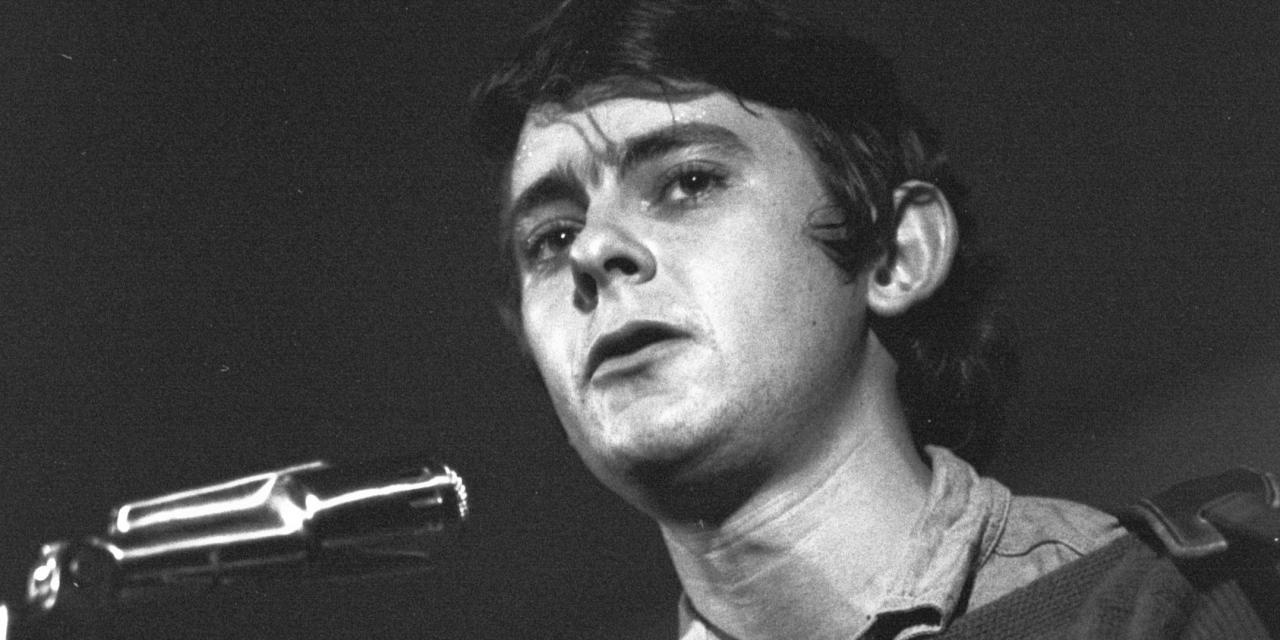Bobby Neuwirth, a enigmatic figure in the annals of folk music, emerges as a captivating subject in this exploration of his artistry and influence. From his pivotal role in Bob Dylan’s “Basement Tapes” to his collaborations with The Band, Neuwirth’s unique style and profound impact on the music industry and counterculture movement unfold in this enthralling narrative.
As a close confidant of Dylan, Neuwirth’s contributions to the legendary musician’s creative process were immeasurable. His insights, anecdotes, and musical contributions paint a vivid picture of the creative synergy that shaped some of Dylan’s most iconic works.
Overview of Bobby Neuwirth
Bobby Neuwirth is an American singer-songwriter, artist, and actor, best known for his association with Bob Dylan in the 1960s.
Neuwirth’s musical career began in the early 1960s when he performed in Greenwich Village folk clubs. He met Dylan in 1961 and became a member of Dylan’s inner circle, contributing to the writing and recording of several of Dylan’s most famous songs, including “Blowin’ in the Wind” and “The Times They Are a-Changin’.”
Collaborations
In addition to his work with Dylan, Neuwirth has collaborated with a wide range of other musicians, including Joan Baez, Tom Paxton, and Ramblin’ Jack Elliott. He has also released several solo albums, including “The Back Pages” (1968) and “Last of the Troubadours” (2008).
Influence on Bob Dylan: Bobby Neuwirth
Bobby Neuwirth played a significant role in Bob Dylan’s “Basement Tapes” sessions, a series of informal recording sessions that took place in the basement of Dylan’s home in Woodstock, New York, from 1967 to 1968. Neuwirth was one of the key collaborators on the project, along with Dylan, his wife Sara, and musicians such as Robbie Robertson, Garth Hudson, and Rick Danko.Neuwirth’s contributions to the “Basement Tapes” sessions were vielfältig.
He co-wrote several songs with Dylan, including “I Shall Be Released,” “Quinn the Eskimo (The Mighty Quinn),” and “This Wheel’s on Fire.” He also played a variety of instruments on the recordings, including guitar, bass, and harmonica. Neuwirth’s presence helped to create a relaxed and creative atmosphere in the studio, and his input was essential to the success of the “Basement Tapes” sessions.
Collaboration with the Band
Bobby Neuwirth’s association with the Band was a pivotal chapter in his career. He joined the group in 1966 and became an integral part of their sound and creative process.Neuwirth’s role within the Band was multifaceted. He contributed as a vocalist, lyricist, and multi-instrumentalist, playing guitar, harmonica, and accordion.
His distinctive vocal style, characterized by its raw and emotional delivery, complemented the Band’s harmonies and added a unique dimension to their music.
Lyrical Contributions
Neuwirth’s songwriting abilities left a significant mark on the Band’s repertoire. He co-wrote several of their most enduring songs, including “The Weight,” “This Wheel’s on Fire,” and “I Shall Be Released.” His lyrics often explored themes of spirituality, social commentary, and personal reflection, adding depth and meaning to the Band’s music.
Musical Collaborations
Beyond his songwriting, Neuwirth’s musical talents played a vital role in shaping the Band’s sound. His eclectic musical background brought a diverse range of influences to the group, from folk and blues to rock and roll. He frequently played guitar and harmonica on their recordings, contributing intricate solos and rhythmic accompaniment.Neuwirth’s presence within the Band extended beyond his musical contributions.
He was a close friend and confidant of Bob Dylan, and his insights and perspectives often influenced the group’s creative decisions. His connections within the music industry also helped the Band secure important collaborations and opportunities.
Personal Life and Legacy
Bobby Neuwirth lived a tumultuous personal life, marked by both creative brilliance and personal struggles. He was known for his charismatic and enigmatic personality, as well as his involvement in the counterculture movement.Neuwirth had a complex relationship with his family.
He was estranged from his father for many years and had a difficult relationship with his mother. He married twice, but both marriages ended in divorce. Neuwirth also struggled with drug and alcohol addiction throughout his life.Despite his personal challenges, Neuwirth had a profound impact on the music industry and counterculture movement.
He was a close friend and collaborator of Bob Dylan, and his influence can be heard in many of Dylan’s most famous songs. Neuwirth was also a member of The Band, and his contributions to the group’s music were significant.Neuwirth’s legacy is one of a creative and influential artist who lived life on his own terms.
He was a pioneer of the counterculture movement, and his music and writing continue to inspire people today.
Artistic Style and Themes
Bobby Neuwirth’s artistic style was characterized by its introspective nature, use of symbolism and imagery, and exploration of personal experiences. His songwriting often delved into themes of love, loss, and the human condition.
Neuwirth’s use of symbolism was particularly notable. In the song “The Ballad of the Fox Hunter,” for example, he uses the image of a fox hunt to represent the pursuit of wealth and power. His imagery was often vivid and evocative, creating a strong sense of atmosphere and mood.
Personal Experiences, Bobby neuwirth
Neuwirth’s personal experiences played a significant role in his songwriting. Many of his songs were inspired by his own struggles with addiction and mental illness. In the song “The Man in Me,” he sings about his battle with depression and his desire to find inner peace.
Discography and Notable Songs
Bobby Neuwirth released several albums and singles throughout his career, showcasing his unique blend of folk, blues, and rock music. His most significant songs often explored themes of love, loss, and the human condition.
Major Albums
- Jack of Hearts (1975):Neuwirth’s debut album, featuring the hit single “Sweetheart Like You.”
- The Last of the True Believers (1984):A collaboration with David Bromberg, showcasing their shared love of folk and blues.
- Keep Low (1994):A critically acclaimed album that highlighted Neuwirth’s songwriting skills and eclectic musical style.
Notable Singles
- “Sweetheart Like You” (1975):A poignant love song that became a minor hit and showcased Neuwirth’s lyrical prowess.
- “Mercedes Benz” (1976):A cover of Janis Joplin’s iconic song, featuring Neuwirth’s distinctive vocal delivery and heartfelt interpretation.
- “The River (of Time)” (1994):A haunting and evocative track that reflected Neuwirth’s introspective songwriting style.
Cultural Impact and Recognition
Bobby Neuwirth’s unique persona and artistic vision left an enduring mark on popular culture and music trends. His unconventional lifestyle and charismatic personality made him a countercultural icon, influencing the bohemian scene in Greenwich Village and beyond.
Influence on Music
Neuwirth’s collaboration with Bob Dylan and The Band brought his experimental approach to a wider audience. His distinctive harmonica playing and enigmatic lyrics influenced the sound and style of Dylan’s mid-1960s recordings, notably the album “Bringing It All Back Home.” Neuwirth’s songwriting also left its mark, with his compositions “The Mighty Quinn” and “The Weight” becoming classics of the folk-rock genre.
Cultural Legacy
Neuwirth’s cultural impact extended beyond music. He was a regular at Andy Warhol’s Factory, where he interacted with artists, musicians, and intellectuals who shaped the avant-garde movement. His presence in these circles contributed to the blurring of lines between art, music, and fashion.
Recognition and Tributes
Neuwirth’s influence has been recognized and celebrated by fellow artists. Joan Baez, Grateful Dead, and The Byrds have all recorded covers of his songs. His work has also been referenced in films and literature, solidifying his status as a cultural touchstone.
Final Review
Bobby Neuwirth’s legacy extends far beyond his collaborations with musical giants. His personal life, marked by both triumphs and struggles, adds depth and complexity to his story. As a pioneer of the folk revival and a tireless advocate for social justice, Neuwirth’s influence continues to resonate in the hearts and minds of music lovers worldwide.
Clarifying Questions
What was Bobby Neuwirth’s relationship with Bob Dylan?
Bobby Neuwirth was a close friend and confidant of Bob Dylan, serving as a muse and collaborator during Dylan’s influential “Basement Tapes” period.
How did Bobby Neuwirth contribute to The Band?
Bobby Neuwirth was a founding member of The Band, contributing his songwriting, vocals, and harmonica skills to the group’s acclaimed albums and performances.
What was Bobby Neuwirth’s personal life like?
Bobby Neuwirth’s personal life was marked by both triumphs and struggles, including battles with addiction and periods of homelessness. Despite these challenges, he remained a beloved figure in the music community.


